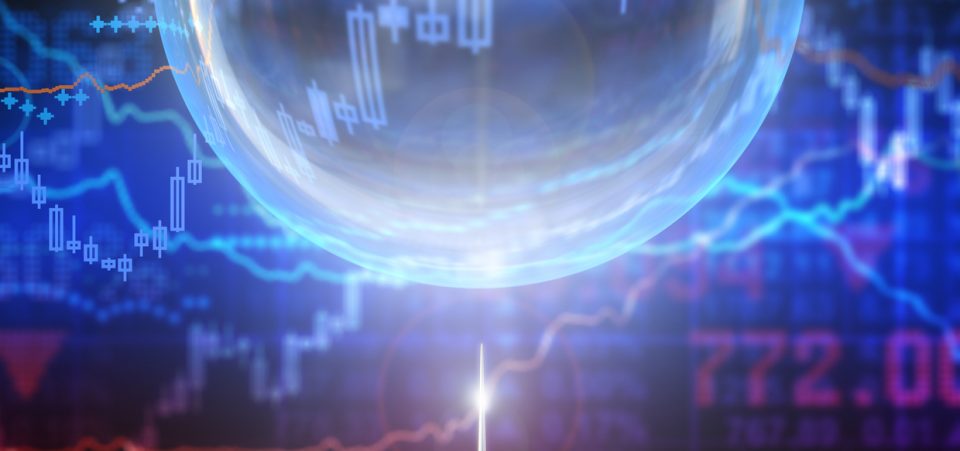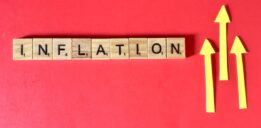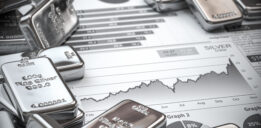A Stock Market Crash is Inevitable as Tech Bubble and Trade War Expose Weaknesses
Amazon.com, Inc. (NASDAQ:AMZN) stock has been getting the pneumatic hammer treatment on Wall Street. Many consider this a sign of the imminent stock market crash. The market lost some six percent of its value on April 2. Many like to blame President Donald Trump for the loss. He has taken to tweeting against Amazon, which suggests that the White House could take measures to further regulate the famous online retailer.
Only fools, or worse, are saying that our money losing Post Office makes money with Amazon. THEY LOSE A FORTUNE, and this will be changed. Also, our fully tax paying retailers are closing stores all over the country…not a level playing field!
— Donald J. Trump (@realDonaldTrump) April 2, 2018
Evidently, the market is counting on Amazon being able to exploit its full potential for greed to return value. Yet, the charts paint a different picture when it comes to Amazon. The most notable aspect is that, despite its losses, the Amazon stock price remains at all-time highs. It reached a record $1,598 per share on March 12. Trump’s tweets may or may not have pushed it down to $1,372 by Easter Monday (April 2).
Amazon Isn’t Dropping Because of Trump Alone
Yet there’s something else missing from the analysis. Amazon isn’t just dropping because Trump, in a rare occasion of clarity, says he doesn’t like the company because it’s driving many small retailers out of business. Trump is absolutely right in this case, but if Amazon investors are selling, they are sensing a much bigger risk than Trump’s reproach against Amazon CEO Jeff Bezos.
The Trump-Bezos dispute is hardly news. Even before Trump won the 2016 election, the Amazon billionaire hinted that he would send Trump to space in one of his rockets. There’s nothing new, then, about the Trump-Bezos rivalry. (Source: “Jeff Bezos Still Wants to Send Trump to Space,” Gizmodo, October 20, 2016.)
Even if Trump tried to enforce regulatory measures that targeted Amazon directly, Congress would have to pass them. Other companies could be affected as well, thus Trump cannot take credit for Amazon stock’s bearish performance over the last weeks of March and start of April 2018.
There’s something else. Tesla Inc (NASDAQ:TSLA) and Facebook Inc (NASDAQ:FB) stocks have also dropped sharply in the same period. Indeed, Tesla stock has suffered more than the others. On April 2, TSLA stock was worth about $254.00. The last time it had that price was in February 2017. And many Hollywood acolytes and pimple-faced teenagers revere Tesla CEO Elon Musk as the Greeks did their gods. Jeff Bezos and Facebook’s Mark Zuckerberg haven’t even reached the foot of Mount Olympus.
Investors can only wish that Trump’s tweets are what have compromised Amazon stock’s price. It would imply a fickle response to even more fickle threats from a president, who could have done far more to help the middle and poor classes if he cares about them so much. He does not, and people have come to realize that. Rather, the reasons why Amazon and other stocks are dropping have much more to do with the economy and expectations for it.
The Stock Market’s Hangover
After a party, depending on how responsible your partying was, there’s an inevitable hangover. Just as going back to work or school after a period of holidays and vacation can bring on a minor depression, the tax cuts that pushed the Dow Jones to break every record and every analyst’s most optimistic prediction did their trick. The party lasted a few weeks, driving the Dow to 26,200.
Now the hangover has begun, and it has deeper roots than Trump’s tweets. That said, it does have something to do with the President of the United States. Trump has played with fire, playing the trade-and-tariff card. On many aspects, Trump was right to demand fairer rules and protections for American workers. Apart from the difficulties many businesses would have in fulfilling the ultra-bullish expectations of investors—already reflected in the stock price—Trump has placed another stick in the wheel: a trade war with China.
After the first salvos targeting China’s steel and technology—accusing it of violating copyright and practicing industrial espionage—Trump is considering the approval of additional tightening measures.
Do the Trade Wars Explain the Bearish Market?
In the days leading up to the deadline for Trump to present the final list of Chinese imports subjected to new tariffs, (affecting some $60.0 billion worth of goods, on top of the already approved 25% tax on steel and 10% on aluminum), Beijing has responded by flexing its own trade muscles.
As a reminder of Newton’s third law of motion—that’s the one about actions and opposite reactions—China wanted to ensure that Trump’s trade war wouldn’t come without pain. China’s President Xi Jinping attends the “no pain, no gain” school of thought, as it were.
Thus, China has decided to adopt new tariffs affecting meat, fruit, and other products that it imports from the United States. China has launched a full-scale counterattack. The Chinese Ministry of Finance is ready to unleash its retaliation, even as Trump mulls over his own additional measures. The China Customs Commission wants to increase the tariff rate for eight imported U.S. products, including pork and aluminum scrap, by 25%.
Wall Street reacted badly. The Dow Jones dropped over two percent while the NASDAQ was losing already under the weight of the pressure on tech stocks. The market has been dropping on what’s shaping up to be a combination of a trade war and a tech bubble. Trump has dismissed suggestions that China and the United States—with related repercussions for the whole world—have entered a trade war.
It’s only a matter of time before the farmers of America’s heartlands (many of whom voted for Trump) will start informing him that China’s tariffs will hurt them. Note that China bought some $20.0 billion of American agricultural products in 2017.
Still, as foreboding as this combination of factors might be, it does not explain the negative trend reversal in the markets. There is a real sense of fear that has gripped investors. The markets are in full correction mode, and a major stock market crash will occur before the same bullish sentiment that set Dow Jones records in the first weeks of 2018 shall return.
The past few months suggest that Wall Street has already reached a peak bullish phase. The market has been in growth mode since 2009, which makes it one of the longest winning streaks in history. There have been a few valleys along the path, but they were short-lived.
Now, it’s investor sentiment itself that is suffering. Investors themselves are “depressed.” There’s a sense for many that there’s little they can do to get ahead in the modern economy. Life has become far more expensive, and the ticket to the middle class costs far more than ever.
At the start of February, the Dow Jones lost 10%. It has never recovered the points it gave up. Instead, the Dow has reached a new low for 2018—once the most bullish and the most bearish year for the markets since 2009. Nonetheless, nobody should be surprised if the markets sink further in a deeper stock market crash in the next few months, or even weeks. Investors who have performed some soul searching will have already reached a breakthrough.
A Major Stock Market Crash Is Inevitable
Investors have simply poured too much money into stocks, with little thought to fundamentals or the risks. They might as well have thrown darts at a board to pick stocks. This phenomenon has spread from Wall Street to the European and other major stock markets as well.
Trump’s trade war with China, the return of the Cold War (which has improved the fundamentals for a handful of defense sector stocks), and the tech bubble triggered by a “black swan” event affecting Facebook have crystallized the bearish trend.
It’s becoming apparent that what some investors and the media had described as a “flash crash” is anything but. A flash implies an instant; the February 2018 crash continues to have consequences now. Investor sentiment definitively changed for the worst. The markets don’t like limbo.
They may linger for a few more weeks, but they are more vulnerable. A single freak episode—a tail risk or black swan—could deal the final blow.






